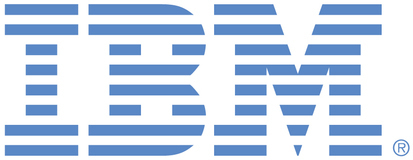
This portal is to open public enhancement requests against the products and services belonging to IBM Sustainability Software. To view all of your ideas submitted to IBM, create and manage groups of Ideas, or create an idea explicitly set to be either visible by all (public) or visible only to you and IBM (private), use the IBM Unified Ideas Portal (https://ideas.ibm.com).
Shape the future of IBM!
We invite you to shape the future of IBM, including product roadmaps, by submitting ideas that matter to you the most. Here's how it works:
Search existing ideas
Start by searching and reviewing ideas and requests to enhance a product or service. Take a look at ideas others have posted, and add a comment, vote, or subscribe to updates on them if they matter to you. If you can't find what you are looking for,
Post your ideas
Post an idea.
Get feedback from the IBM team and other customers to refine your idea.
Follow the idea through the IBM Ideas process.
Specific links you will want to bookmark for future use
Welcome to the IBM Ideas Portal (https://www.ibm.com/ideas) - Use this site to find out additional information and details about the IBM Ideas process and statuses.
IBM Unified Ideas Portal (https://ideas.ibm.com) - Use this site to view all of your ideas, create new ideas for any IBM product, or search for ideas across all of IBM.
ideasibm@us.ibm.com - Use this email to suggest enhancements to the Ideas process or request help from IBM for submitting your Ideas.

Hi Mark, Thank you for taking the time to provide your ideas to IBM. Our team has evaluated your idea and we will leave it here and review periodically for possible inclusion in a future release. You can encourage others to show support by voting on this idea. Thank you again for your feedback.
Business use case outline for leveraging GitHub to track code changes in your application. GitHub offers several advantages that can enhance your development process and streamline collaboration:
Centralized Code Repository:
GitHub provides a centralized location for storing your application’s codebase. By hosting your code on GitHub, you create a single source of truth accessible to all team members.
Developers can easily clone, fork, and collaborate on the same repository, ensuring consistency and reducing the risk of code divergence.
Version Control and History:
GitHub’s version control system (Git) allows you to track changes over time. Each commit represents a specific change, making it easy to understand the evolution of your codebase.
Detailed commit history, including who made the change and why, helps with auditing, troubleshooting, and accountability.
Collaboration and Code Reviews:
GitHub enables efficient collaboration among developers. Teams can create branches for features, bug fixes, or experiments.
Pull requests (PRs) facilitate code reviews. Reviewers can comment, suggest changes, and approve or reject PRs. This process ensures code quality and knowledge sharing.
Issue Tracking and Project Management:
GitHub Issues allow you to track tasks, enhancements, and bugs. You can assign issues, set priorities, and link them to specific code changes.
Project boards (using GitHub Projects) help organize work. You can create custom workflows, visualize progress, and allocate resources effectively.
Automated Workflows:
GitHub Actions and workflows automate repetitive tasks. For example, you can set up continuous integration (CI) pipelines to build, test, and deploy your application automatically.
Integrations with other tools (e.g., Slack, JIRA) enhance communication and streamline processes.
Security and Compliance:
GitHub provides security features like vulnerability scanning, dependency analysis, and code scanning. These help identify and address security issues early.
Compliance requirements (such as GDPR or HIPAA) can be met by configuring access controls, audit logs, and protected branches.
Community and Open Source Collaboration:
GitHub fosters collaboration beyond your organization. You can contribute to open source projects or receive contributions from the community.
Public repositories allow transparency and encourage knowledge sharing.